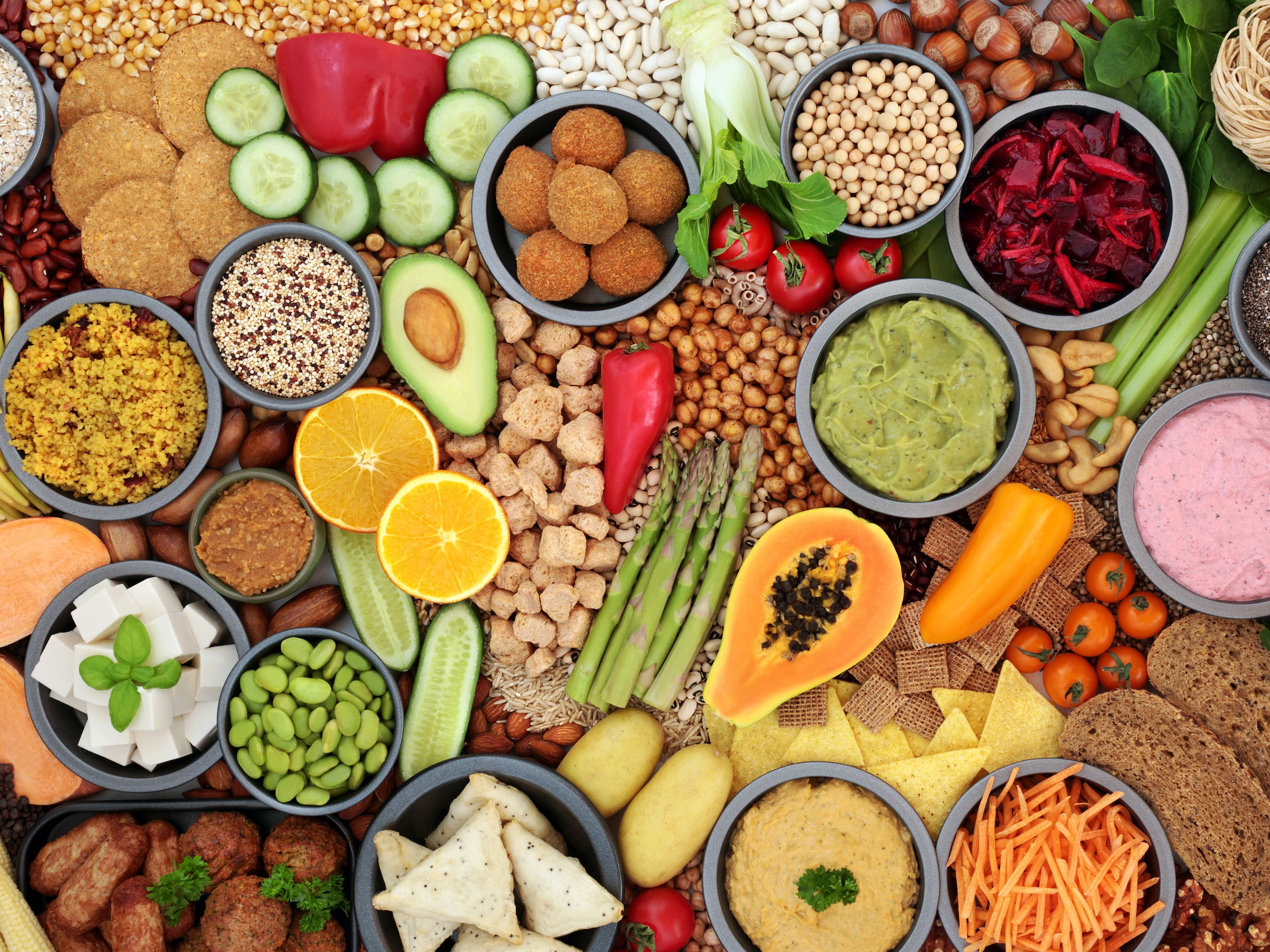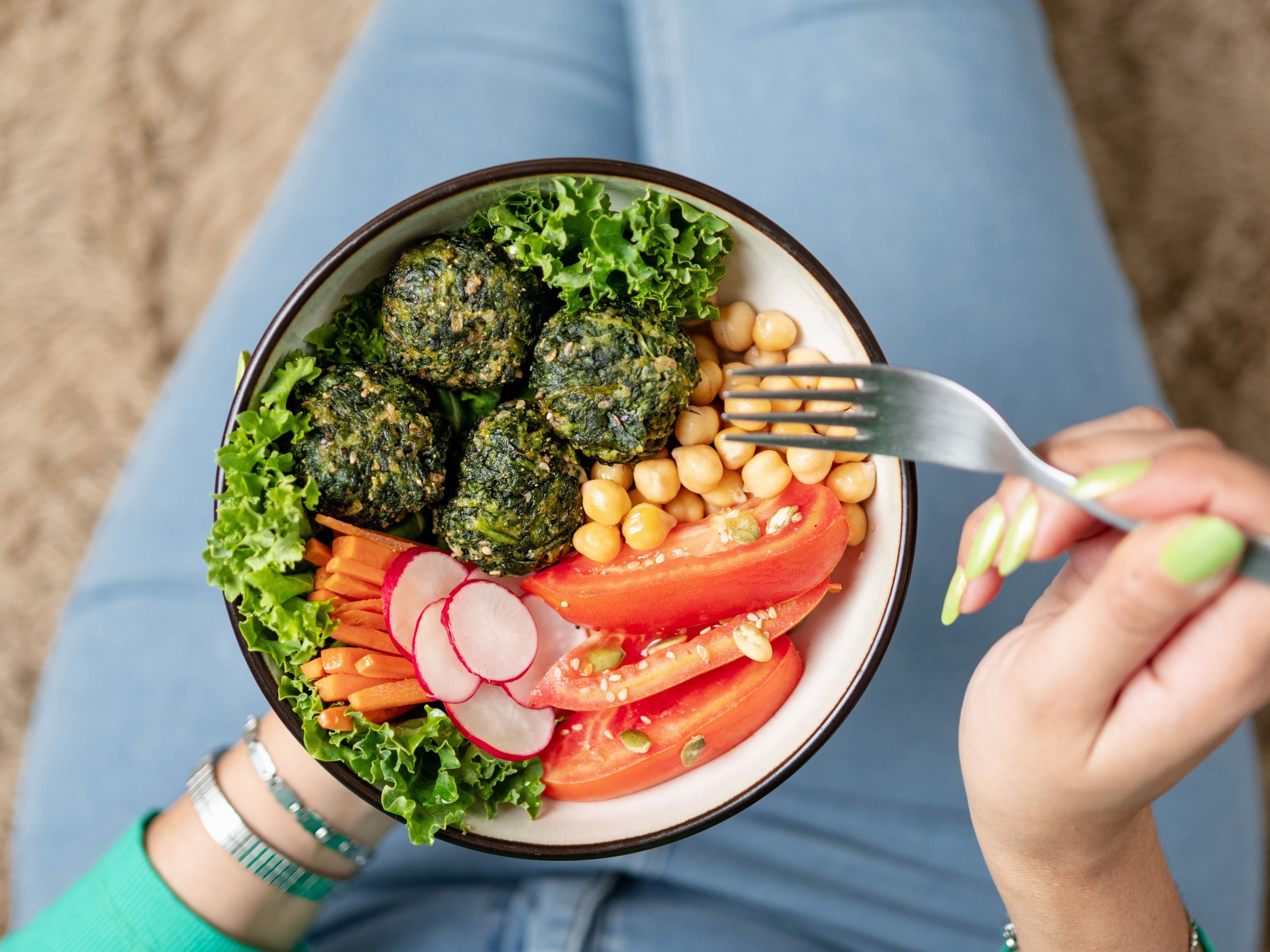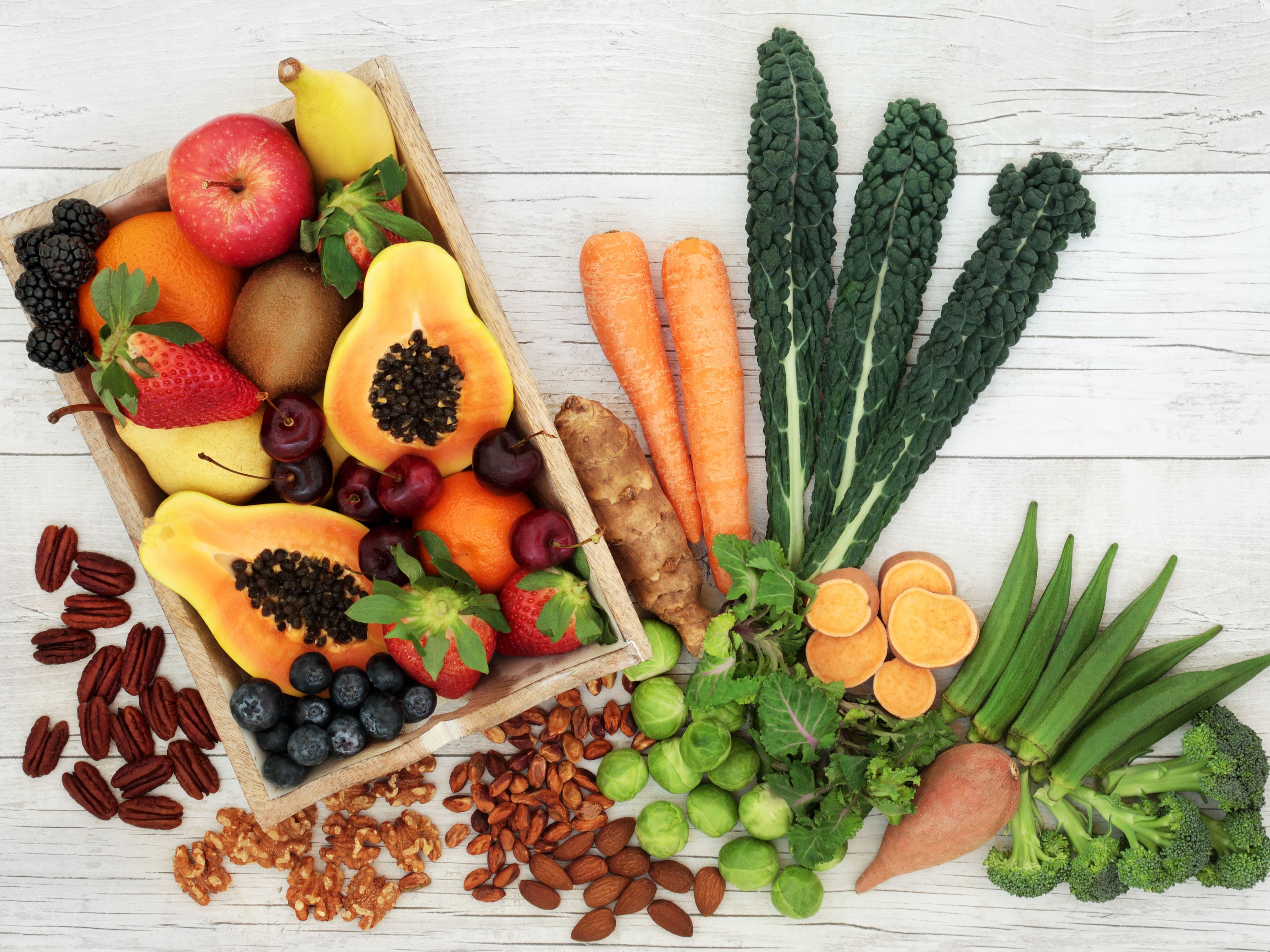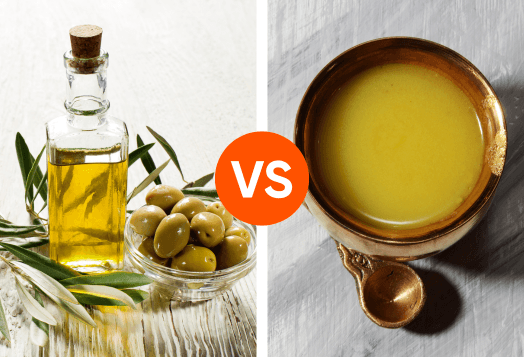India, a land steeped in culinary tradition, has always had a strong connection to plant-based foods. From Ayurvedic principles to the diverse vegetarian and vegan cuisines flourishing across the country, plants have played a central role in our diets for centuries. But is plant-based nutrition actually right for you?

The Great Debate
With the rise of global food trends and a growing awareness of health and environmental concerns, the concept of plant-based diets has taken on a new meaning.
No longer simply synonymous with traditional vegetarianism, the modern plant-based movement emphasises minimising or eliminating animal products altogether, focusing instead on a bounty of fruits, vegetables, grains, legumes, nuts, and seeds.
This shift has sparked a lively debate across India: Are these diets truly beneficial? Are they sustainable in the Indian context? Let’s delve into the world of plant-based eating in India, exploring its potential benefits, addressing common concerns, and practical tips for adopting a plant-based lifestyle.
Benefits of Plant-Based Eating
Switching to a plant-based diet has multiple advantages, from better health to a lower carbon footprint. Here are some key benefits:
1. Better digestion and energy levels
A diet rich in plant foods is packed with fibre, which not only aids digestion but also supports a healthy gut microbiome. The abundance of vitamins, minerals, and antioxidants in plant-based meals helps to naturally nourish the body, keeping you active and refreshed throughout the day.
2. Improved heart health
Eating more fruits, vegetables, and whole grains can help reduce cholesterol levels and lower the risk of heart disease. According to a study published in the National Library of Medicine, plant-based diets have been associated with improved cardiovascular health and a reduced risk of chronic diseases. These foods contain essential nutrients that promote cardiovascular well-being and support overall heart function.
3. Sustainable and environmentally friendly
A plant-based diet is often more sustainable as it requires fewer resources like water and land compared to animal-based diets. By choosing plant-based meals, you contribute to a healthier planet.
4. Supports a balanced lifestyle
Plant-based eating encourages mindful food choices by shifting the focus to whole, natural ingredients that nourish the body from within.
By consuming a variety of fruits, vegetables, legumes, and whole grains, individuals can maintain a well-rounded diet that supports weight management and promotes overall well-being.
This approach to eating also fosters a deeper connection with food, helping individuals make healthier choices that contribute to long-term health and vitality.
5. Reduced risk of type 2 diabetes
A well-balanced plant-based diet may help lower the risk of developing type 2 diabetes. Research has shown that individuals who consume more whole plant foods tend to have better insulin sensitivity and lower blood sugar levels.
A study published in JAMA Internal Medicine found that plant-based diets, particularly those focused on whole, unprocessed foods, were associated with a significantly lower risk of type 2 diabetes.
Nutritional Considerations: What to Watch Out For

A well-planned plant-based diet can meet all your nutritional needs, but here are some key nutrients to pay attention to:
Protein: Include lentils, chickpeas, soya, nuts, and seeds.
Iron: Get iron from spinach, rajma, black sesame seeds, and jaggery.
Calcium: Fortified plant-based milk, ragi, and almonds are great sources.
Vitamin B12: Consider fortified foods or supplements if you avoid dairy.
Healthy Fats: Found in flaxseeds, walnuts, avocados, and olive oil.
Making the Transition: Practical Tips
Thinking of switching to a plant-based diet? It can be overwhelming. Here’s how to make the transition easier:
1. Start Small: Begin by replacing one meal a day with a plant-based alternative. Gradually increase plant-based meals as you feel comfortable.
2. Explore Indian Cuisine: Traditional foods like dal, sabzi, poha, idli, and dosa already fit a plant-based diet. Embrace regional specialities rich in plant-based nutrition.
3. Experiment with New Recipes: Try tofu bhurji instead of egg bhurji or use almond milk in chai. Explore plant-based versions of your favourite dishes to keep meals interesting.
4. Plan Your Meals: Meal prepping can ensure you get a balanced diet throughout the week. Make sure to include a mix of grains, legumes, nuts, and fresh produce.
5. Stay Informed: Read labels and be aware of hidden animal-derived ingredients in packaged foods. Common additives like gelatin and whey may not be plant-based.
6. Listen to Your Body: Pay attention to how your body feels as you transition. Adjust your meals to ensure you get enough protein, iron, and other essential nutrients.
Meeting Your Daily Requirements with a Plant-Based Diet
A well-structured plant-based diet can easily meet your daily nutritional needs. Here's a sample meal plan to illustrate how you can incorporate key nutrients into your everyday meals:
Breakfast:
Option 1 (Sweet): Oatmeal with almond milk, topped with seeds (chia, flax) and fresh seasonal fruit like mango or banana. This provides fibre, protein, healthy fats, calcium, and iron (from ragi).
Option 2 (Savory): Moong dal cheela (pancakes) with a side of coconut chutney. This offers protein, fibre, and iron.
Lunch:
Option 1: Rajma (kidney bean) masala with brown rice and a side of cucumber and tomato salad. This is an excellent source of protein, iron, and fibre.
Option 2: Mixed vegetable curry (like aloo gobi or palak paneer – using tofu or paneer alternative) with roti or brown rice. This provides a variety of vitamins and minerals along with protein and fibre.
Dinner:
Option 1: Tofu and vegetable stir-fry with brown rice. Consider adding paneer or tofu and soya chunks for added protein.
Option 2: Dal with brown rice or roti and a side of bhindi (okra) or palak (spinach). This provides protein and iron.
Snacks:
A handful of roasted chickpeas or peanuts.
A plate of fruit (banana, apple, orange, guava).
A small bowl of sprouts.
A smoothie made with plant-based milk (almond, coconut), spinach, and fruit.
Plant-Based Superfoods
Certain plant-based foods are particularly nutrient-dense and offer a wide range of health benefits. These superfoods can be excellent additions to your diet:

Spinach: Rich in iron, calcium, and vitamins A and C.
Kale: Packed with vitamins K, A, and C, as well as fibre and antioxidants.
Berries: High in antioxidants and fibre.
Flaxseeds and Chia Seeds: Excellent sources of omega-3 fatty acids and protein.
Legumes (Lentils, Chickpeas, Black Beans): Provide protein, fibre, iron, and other essential nutrients.
Nuts and Seeds: Good sources of healthy fats, protein, and minerals.
Avocados: Rich in healthy fats and potassium.
Quinoa: A complete protein source that also provides fibre and iron.
Finding Your Balance

While traditional Indian diets have often been naturally rich in plant-based foods, the modern plant-based movement offers a more focused and intentional approach to incorporating plant-based nutrition.
Ultimately, the decision to embrace a plant-based diet is a personal one. By carefully considering the information presented here and by prioritising balanced and informed choices, you can harness the benefits of plant-based eating to live a healthier and more fulfilling life.
Disclaimer: This information provided is intended for general informational purposes only. It is not a substitute for professional advice or guidance. For personalized recommendations or specific concerns, please consult a certified nutritionist.




